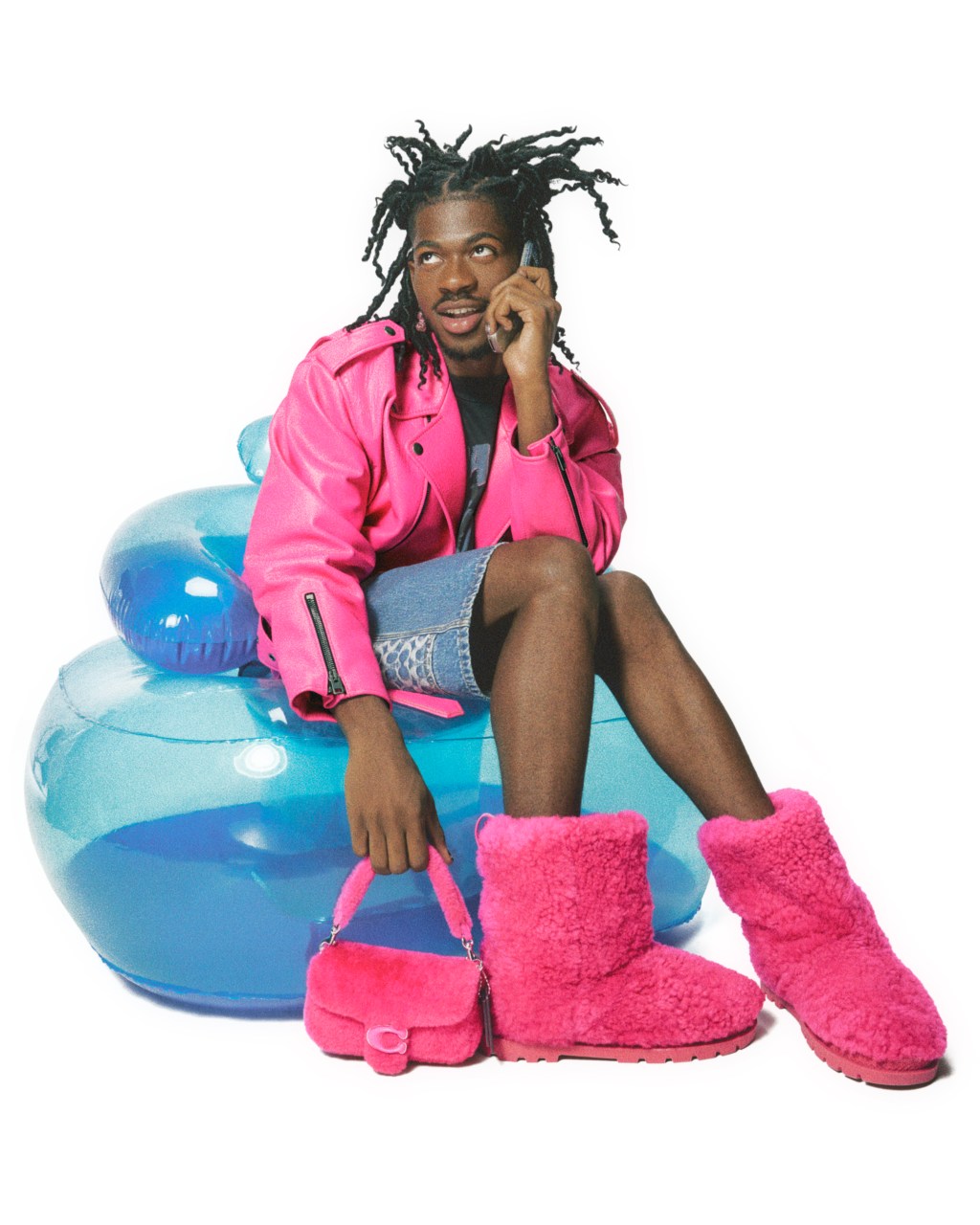Now that President Trump has officially started his second term, his plans for the future of the country are coming into focus. From immigration to trans rights, Trump has made his priorities for the next four years clear. And when it comes to public health, a Trump administration could mean a deluge of misinformation and deregulation with dire consequences.
Since nominating Robert F. Kennedy Jr. for secretary of the Department of Health and Human Services in November, Trump has said he’d let the anti-vax politician “go wild on health.” RFK Jr. has promised to lead the charge on “Make America Healthy Again,” his radical and wide-ranging platform to address the public health crisis in America. Kennedy will appear before two Senate committees this week for his confirmation hearings, and the country is watching.
Interestingly, some of MAHA’s most divisive views have found a home among wellness influencers – and in particular, pregnant and postpartum women. As Rachel Blum, PhD, explains: “Women are, on average, closer to topics like food and health, and more likely to be grasping for a large-scale solution to systemic problems.”
If you’ve seen influencers backing beliefs central to MAHA, you aren’t alone. But here’s what you should know about MAHA’s rise online and how to navigate your own health concerns in an era where health misinformation runs rampant.
Experts Featured in This Article
Rachel Blum, PhD, is an assistant professor at the University of Oklahoma.
Jessica Knurick, PhD, RDN, is a registered dietitian and researcher.
Jessica Wilson, MS, RDN, is a clinical dietitian, consultant, and author.
Adrian Chavez, PhD, is an evidence-based nutritionist.
Heather E. Lanthorn, ScD, MPH, is a social and behavioral scientist improving health systems toward dignity.
What Is MAHA, Exactly?
The Make America Healthy Again movement is grounded in the belief that improving the nation’s health requires a combination of personal responsibility, systemic reform, and community-driven initiatives. During the 2024 election, the MAHA Alliance, a super PAC led by Del Bigtree – former communications director for the RFK Jr. campaign and CEO of the anti-vaccine organization Informed Consent Action Network – actively worked to sway Kennedy voters toward supporting Trump when RFK dropped out of the race as an independent.
The movement focuses on improving nutrition, promoting physical fitness, supporting mental health, and ensuring equitable healthcare access. It advocates for better food labeling, increased availability of nutritious food options, urban planning that encourages active lifestyles, and workplace wellness programs.
However, certain aspects of the agenda have come under criticism from many health professionals. Several core beliefs are not upheld by most medical experts, including the initiative to adopt raw milk over pasteurized milk and the belief that fluoride should be removed from drinking water. But one of the biggest hallmarks of the agenda is its criticism of widespread vaccine adoption, with RFK Jr. himself having stated that “there’s no vaccine that is safe and effective” and promising to demand more transparency around the risks of vaccines. One of his more fringe beliefs is that vaccines cause autism, which has been widely debunked by scientific research. Most recently, RFK’s lawyer asked the Food and Drug Administration to revoke the approval of the polio vaccine, which, as The New York Times points out, “has protected millions of people from a virus that can cause paralysis or death.”
According to Dr. Blum, it’s the combination of some sound proposals with more fringe beliefs that makes MAHA dangerous. “The problematic part of MAHA is the combination of conspiracy theories (e.g., vaccines cause autism) with some truths (e.g., processed foods are unhealthy, Americans suffer from chronic illnesses),” Dr. Blum says. In this way, MAHA suggests that making certain tweaks to our health and food systems – often, tweaks not supported by much research – will “solve” these society-wide problems.
“The whole idea has been distrust in government, distrust in scientists, distrust in expertise, in order to get you to trust them,” says Jessica Knurick, PhD, RDN. “If you have an opposing viewpoint, people can be manipulated into thinking they must align with the movement if they care about Americans’ health. It plays into the narrative that nutrition experts don’t want to make America healthy and they’re trying to keep us sick.”
How MAHA Found a Home Among Wellness Influencers
The ideals behind MAHA are nothing new. For a long time now, the tenets of the movement have been dubbed “wacky” or “dangerous” by liberals and mainstream media – and for good reason, considering many of them risk public health safety (see the research that says fluoride is necessary for our well-being, and that raw milk can be incredibly unsafe).
It makes sense that women, and in particular mothers, are one group that the MAHA movement seeks to target.
But it makes sense that women, and in particular mothers, are one group that the MAHA movement seeks to target. Women face many chronic illnesses at higher rates; our health is the subject of much less research than men’s; and we are often responsible for decisions about children’s health and family nutrition.
As dietician Jessica Wilson, MS, RD, explains: “White, suburban moms who are concerned about what their kids eat in school and can be mobilized to villainize vaccines were key target audiences for the MAHA PAC.” Many of MAHA’s ideas are said to have circulated among influencers like the Means siblings, The Food Babe, Realfoodology, Jillian Michaels, and Healthillie, who believe the FDA has failed them and, in turn, prioritize wellness culture (which often revolves around alternative supplements and diets).
According to nutritionist Adrian Chavez, PhD, ideas central to MAHA have been promoted by wellness influencers online, including those who have pushed distrust in government and the idea that the FDA is harming health and suppressing cures. This, he argues, is a marketing tactic to get people to believe that brands or influencers have an answer, allowing them to sell people supplements or detoxes. For example, after the recent Los Angeles wildfires, influencers attempted to sell followers detox supplements that were allegedly supposed to help with the effects of toxic smoke inhalation.
One study published in the Journal of Medical Internet Research found that unregulated wellness influencers have incentives to “resist messaging from establishment authorities such as public health agencies,” and that became a public-health issue when these influencers showed higher rates of vaccine opposition during the COVID-19 pandemic.
Influencers undoubtedly helped fuel misinformation during the pandemic, and groups like Moms for Medical Freedom wanted to reclaim the “right to choose” whether their family got covid vaccines. Now these folks, Wilson says, “are looking for what RFK Jr. wants: a return to an idyllic time where middle-class families were white, moms didn’t work outside the home, no one talked about autism or mental health, people were thinner than they are now, and there were lower rates of diseases in part because we weren’t diagnosing them.” Indeed, experts worry that misinformation will only spread with MAHA as a backdrop. “Make America Healthy Again capitalized on collective covid trauma and conspiracy theories to get people to vote for Trump,” Wilson says.
The shift toward anti-government sentiments when it comes to healthcare is also part of a larger trend, according to Chavez. From food to drug prices, Democrats were largely seen as failing to address the cost-of-living crisis that faces everyday Americans. Republicans seized on this, repeating the messaging that Democrats were wrong on the biggest issues of our time – food, health, well-being, and economic stability – and instead prioritizing “less” critical issues, such as LGBTQ+ rights.
How to Navigate a World Influenced by MAHA
Until RFK is confirmed, we don’t know what he will actually do – the truth is, he will have limited powers as secretary of this department because many of these laws have to be passed by congress or through executive action. However, researcher Heather E. Lanthorn, ScD, MPH, believes the MAHA movement is already influencing people’s individual health decisions. And Wilson says we’re likely to see more distrust in science from the top down, which she believes will lead more people to look to fringe sources for health information and advice.
“If someone is trying to sell you a supplement, I wouldn’t trust them with any medical advice.”
Moving forward, Lanthorn says we must invest in reputable information sources: “The federal government will no longer be, or for a period of time, will not be a credible source of information, at least from the top,” she says. “We need to invest in supporting and protecting trustworthy information sources and their ability to connect with the public through high quality communication where and how they consume health content.” For her, that means investing in teaching people media literacy and misinformation detection.
While the federal government may not be a reliable institutional source of high quality information, public health professionals in state and local governments, universities, the private sector, teachers, and the media (broadly defined) must step up and become the reliable sources for our communities, advocates say. To navigate health concerns, Wilson says to ask your doctor about your concerns. If you are looking for additional sources, ask for a referral to a specialist, and don’t be afraid to seek out second opinions as well.
And when it comes to supplements and any other product you see wellness influencers peddling, be on high alert. “If someone is trying to sell you a supplement, I wouldn’t trust them with any medical advice,” Wilson says. “If someone is giving you a simple, easy answer to a complex concern, I’d be curious about it.”
Daily multivitamins, B12, and Vitamin D supplements are commonly recommended by mainstream medical providers. Beyond this, most providers warn that the supplement industry is unregulated and supplements could have none of the ingredients they advertise, or could be cut with ingredients that may be unsafe. When it comes to navigating what you’re hearing from wellness influencers online – who are often paid to tout the benefits of certain supplements – it’s important to remember that “many supplements do nothing, so people waste their money,” Lanthron says. And, Wilson reminds us: “Non-medical providers like Alex Jones, Jillian Michaels, and Kourtney Kardashian have their own lines of supplements and have zero medical training.”
Unregulated wellness influencers can be a gateway for believing false and misleading information with more serious consequences, Lanthorn adds: “What starts as engagement with a supplement for glowing skin (and the influencer promoting it) or stress relief can lead to harmful views about vaccines, antibiotics, chemotherapy, etc.”
As for RFK’s anti-vax beliefs, Wilson says, “Get vaccinated. Understand herd immunity. Take a lesson from Marin county.” In the end, she says, it’s important you get medical guidance from credited professionals – not politicians or influencers with fringe beliefs.
Sara Radin is a writer and publicist based in Philadelphia. Her writing on internet trends, style, youth culture, mental health, wellness culture, and identity has been published by The New York Times, Glamour, Self, Teen Vogue, Refinery29, Allure, PS, and many others.




